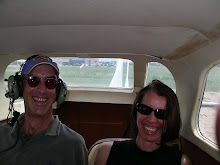
Database: Library Literature
With my search terms already organized from my Building Block search, I added "NOT higher education" to my first set to reflect the fact that I did not want to receive results about university or college libraries.
Set 1: school librar* OR school librar* media center OR secondary libr* NOT higher education
Set 2: curriculum OR instruction OR instruct* planning
For my specific facet, I chose "school library media center" because it seemed to be the most specific of the individual facets. (Each was fairly general.) The Library Literature Help page referred to the use of quotation marks as a "bound phrase" search, meaning the whole phrase would be retrieved. As I did on ERIC for the Building Block search, I chose to first search without any search limiters, what Library Literature refers to as "All -Smart Search." Once I did that, I subsequently searched four more times using Keyword, Title, Subject and Abstract as my limiters. Here are the results, without and with limiters:
Without: 323
Keyword: 323
Subject: 2 (without quotation marks)
Title: 257
Abstract: 156
The first item retrieved on the "All-Smart Search" was a result for an article entitled "Guided Inquiry Curriculum and the Role of the School Library Media Center," written by Tom Adamich and Beatrice Gibbons and published in Library & Media in 2008. It places the librarian and school library in a crucial and central role in the teaching and learning process.
Reflection on Specific Facet First: The results were a mixture of useful and irrelevant. Some of them were articles for how libraries could help improve literacy. Others dealt with physically designing and constructing a school library media center. For a basic search, the Specific Facet First returned comparatively fewer results than the Building Block search without any limiters. The challenge here is finding the "most specific facet first." Finding and searching for a facet is simple, but the "most specific"? Was "school library media center" the most specific? This search strategy relies on clarity and (obviously) specifity in identifying the search terms prior to beginning the search. Once the search begins, winnowing the results is a matter of choosing the right combination of search limiters.
With my search terms already organized from my Building Block search, I added "NOT higher education" to my first set to reflect the fact that I did not want to receive results about university or college libraries.
Set 1: school librar* OR school librar* media center OR secondary libr* NOT higher education
Set 2: curriculum OR instruction OR instruct* planning
For my specific facet, I chose "school library media center" because it seemed to be the most specific of the individual facets. (Each was fairly general.) The Library Literature Help page referred to the use of quotation marks as a "bound phrase" search, meaning the whole phrase would be retrieved. As I did on ERIC for the Building Block search, I chose to first search without any search limiters, what Library Literature refers to as "All -Smart Search." Once I did that, I subsequently searched four more times using Keyword, Title, Subject and Abstract as my limiters. Here are the results, without and with limiters:
Without: 323
Keyword: 323
Subject: 2 (without quotation marks)
Title: 257
Abstract: 156
The first item retrieved on the "All-Smart Search" was a result for an article entitled "Guided Inquiry Curriculum and the Role of the School Library Media Center," written by Tom Adamich and Beatrice Gibbons and published in Library & Media in 2008. It places the librarian and school library in a crucial and central role in the teaching and learning process.
Reflection on Specific Facet First: The results were a mixture of useful and irrelevant. Some of them were articles for how libraries could help improve literacy. Others dealt with physically designing and constructing a school library media center. For a basic search, the Specific Facet First returned comparatively fewer results than the Building Block search without any limiters. The challenge here is finding the "most specific facet first." Finding and searching for a facet is simple, but the "most specific"? Was "school library media center" the most specific? This search strategy relies on clarity and (obviously) specifity in identifying the search terms prior to beginning the search. Once the search begins, winnowing the results is a matter of choosing the right combination of search limiters.


No comments:
Post a Comment